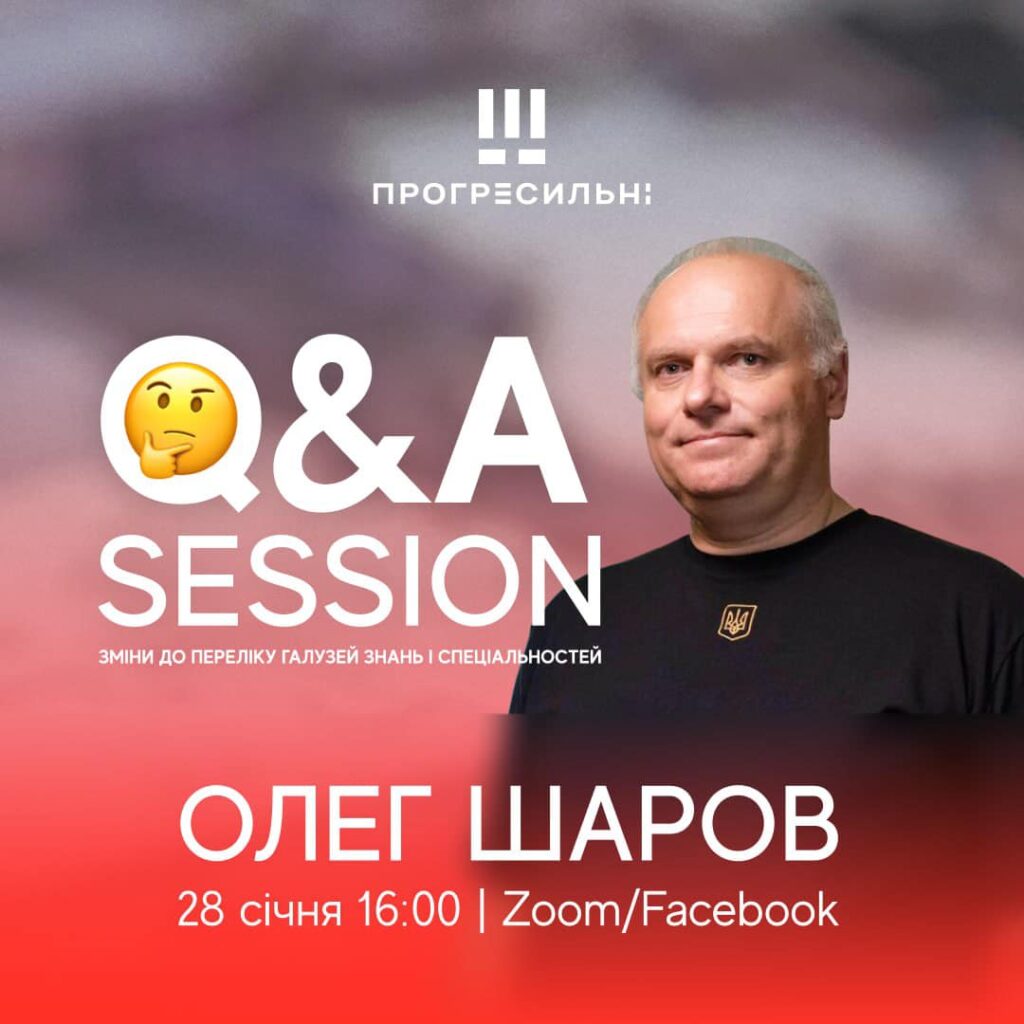Information session by a representative of the HERE team as part of the ‘Q&A Session: Changes to the list of fields of knowledge and specialities’ (28.01.2025, online)
On January 28, 2025, the online event “Q&A Session: Changes to the List of Fields of Knowledge and Specialties” took place to help educators find answers to numerous questions related to the recent updates in the classification. The event attracted a significant number of participants, with over 1,000 educators joining via Zoom and 560 via Facebook.
The moderator of the session, Ivan BALYKIN, welcomed all participants and speakers, emphasizing that the format of the event was designed for active discussion and to provide answers to all the questions submitted by participants during registration, as well as those raised during the live broadcast.
The speakers of this session were:
- Oleg SHAROV, Director General of the Directorate of Higher Education and Professional Pre-Higher Education, ,Member of Erasmus+ HERE team;
- Marina MRUHA, State Expert on Higher and Adult Education at the Ministry of Education and Science of Ukraine, Member of Erasmus+ HERE team.
Oleh SHAROV opened the session by thanking the NGO “Progresylni” for organising the Q&A session. He emphasized that the discussion would be beneficial in structuring further work on the implementation of the new edition of the list of fields of knowledge and specialties.
The event covered the key aspects of Cabinet of Ministers of Ukraine Resolution No. 1021 dated August 30, 2024, which will come into force on November 1, 2024. The primary goal of these changes is to align the national classification with the International Standard Classification of Education (ISCED-F 2013) to ensure accurate statistical comparisons at the international level.
According to Oleh SHAROV, there are both formal and informal reasons for these changes. The formal reasons are related to Ukraine’s commitments in the context of European integration—not in education itself but in statistics. Ukraine must align its educational statistics with European standards.
Revisions to the list of fields of knowledge occur approximately every nine years, with the latest adjustments aimed at modernizing and improving educational standards.
Ukraine first moved towards an international standard classification in 2015. By 2021, an official harmonization was introduced, linking fields and specialties to ISCED codes. The 2024 update completes the alignment of Ukraine’s classification system with international standards.
Oleh SHAROV also noted that 70% of the list of specialties matches the detailed fields used worldwide. The list of fields of knowledge is fully aligned with international classifications, except for one unique category—“Security and Defense.”
Regarding the informal reasons for these changes, they are associated with the transformation of the concept of specialties. According to the Law of Ukraine “On Higher Education” (2014), students are trained based on educational programs, not specialties. Specialties remain only as statistical units, a relic of the past.
“We must be as flexible and adaptive as possible, sometimes to very rapid changes,” Oleh SHAROV stressed.
It is expected that a new generation of competency-based educational standards will be developed and implemented by 2027, requiring significant efforts from the academic community.
The discussion also covered the impact of these changes on:
- Higher and professional pre-higher education,
- Accreditation procedures,
- The 2025 admission campaign.
Students who enrolled before the new classification takes effect will continue their education under the previous fields of knowledge and specialties. Reinstatements of students will be conducted according to the educational programs of the corresponding enrollment year.
The Ministry of Education and Science of Ukraine plans to develop guidelines on aligning educational programs with the new specialties and to establish a procedure for license renewal in accordance with the updated legislation.

